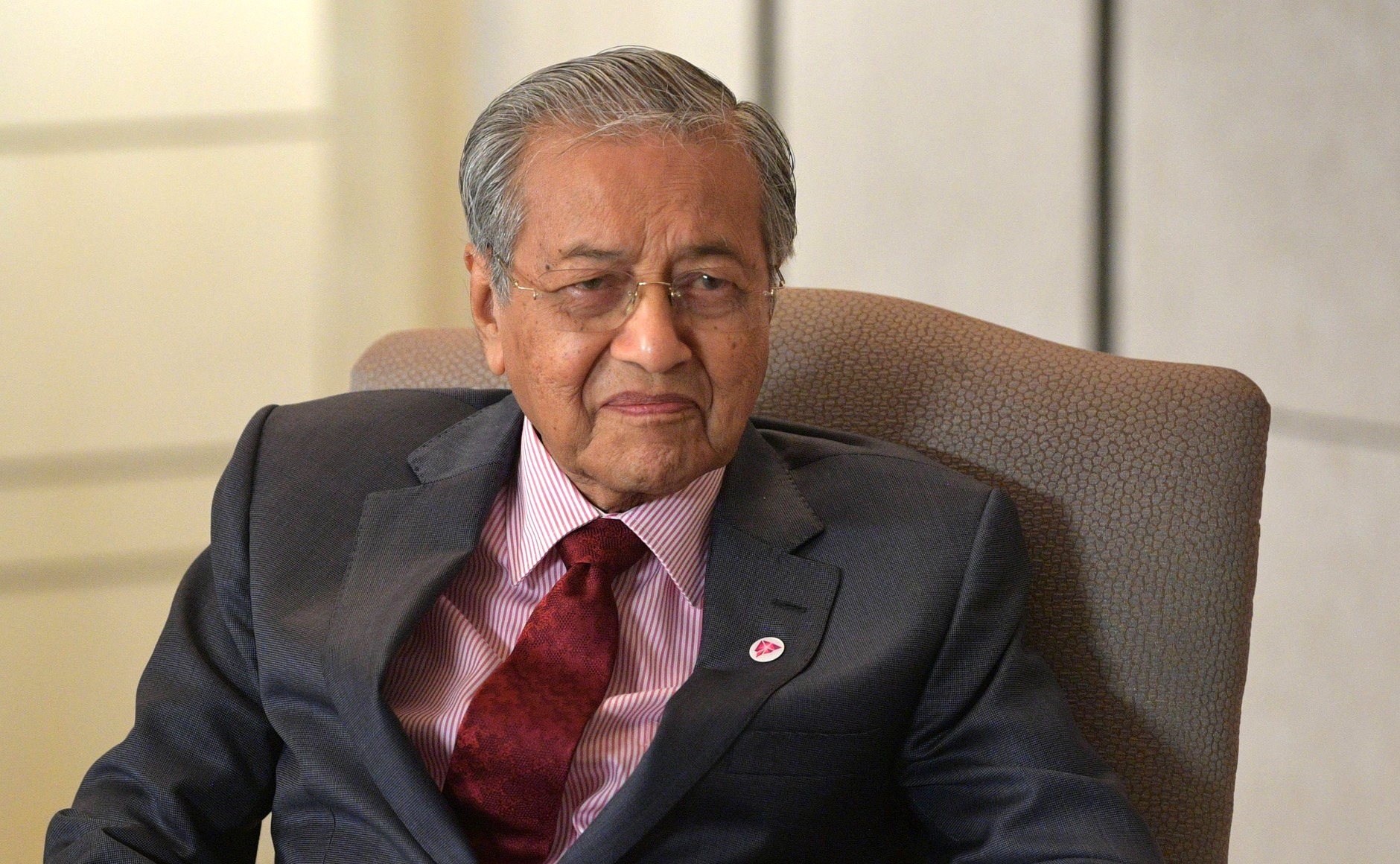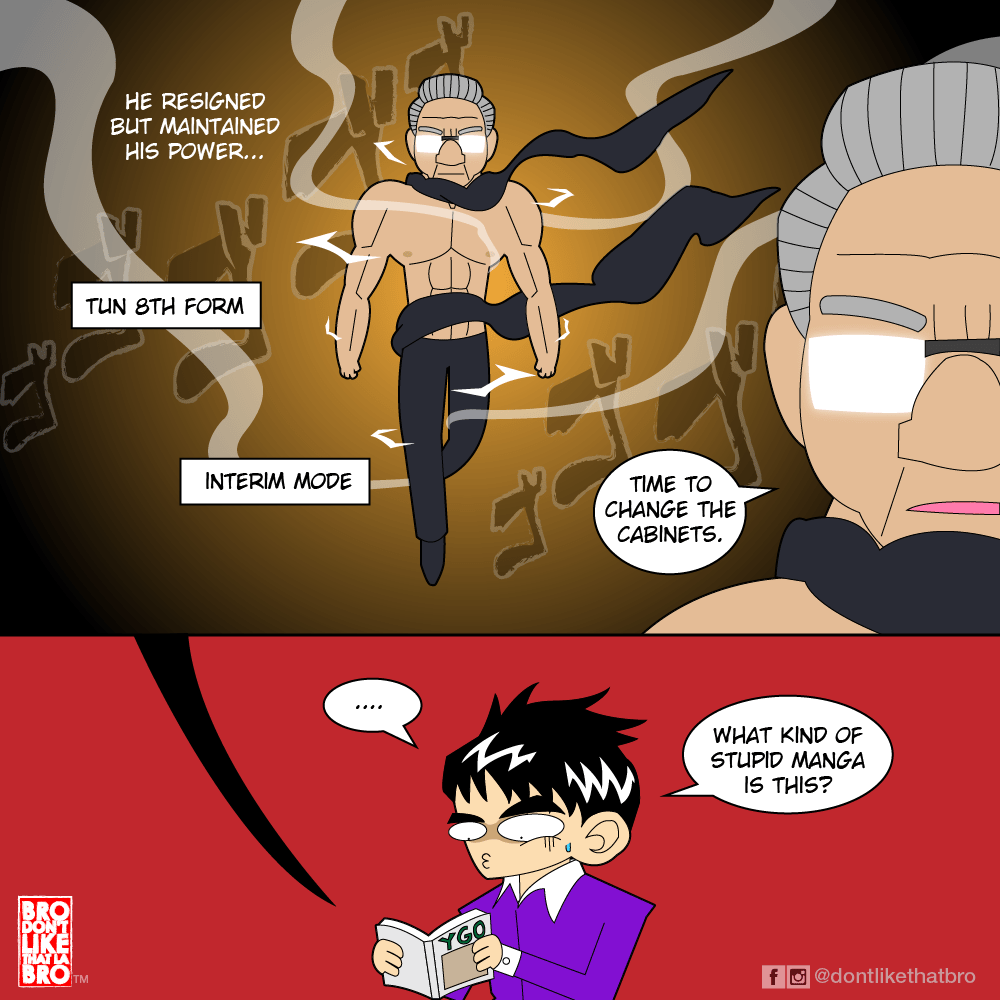Is Mahathir Powerless Now?

By Shaun Tan
Founder, Editor-in-Chief, and Staff Writer
28/2/2020

Mahathir Mohamad
Just a few days ago Malaysian Prime Minister Mahathir Mohamad seemed like the most powerful man in the country. Sure, the defection of MPs from his ruling coalition (including the defection of his own party, Bersatu) had brought down his government, and he’d resigned as prime minister, but he’d been reappointed interim prime minister, and his entire cabinet, including the politicians from the other parties in his coalition with whom he shared power, had lost their positions, leaving him the sole holder of executive power. Almost everyone, it seemed, including the remains of the former ruling coalition, Pakatan Harapan, and the opposition parties UMNO and PAS, supported him becoming prime minister again.
“He resigned but maintained his power,” observed an amusing web comic, which portrayed him in a glorious new “8th Form,” as if he was some overpowered anime character. New Sin Yew, a prominent lawyer, dubbed him, rather melodramatically, “King of the Andals and the Rhoynar and the First Men, Lord of the Seven Kingdoms, and Protector of the Realm.”

Unfamiliar with this issue? Read an earlier story explaining what happened here.
Then, on the 26th of February, he made a speech in which he confirmed what some were beginning to suspect: that he had lost control of his own party, Bersatu, which wanted to form a new ruling coalition with UMNO, a party he condemned for its kleptocracy and refused to work with (a stance many hailed as principled), and had resigned his chairmanship of Bersatu in protest. In his speech, he also asked for the chance to lead a new government “that doesn’t side with any party.” His failure to explain whom this new government would comprise of, what its policies would be, and what it would stand for led the rest of the country to, understandably, conclude that its sole purpose would be keeping him as prime minister. Unsurprisingly, this didn’t go down well with anyone, and the unanimous support his candidacy for prime minister had enjoyed disintegrated almost instantaneously.
Then, the next day, in a shocking reversal, he decided to return to Bersatu as its chairman. Was Mahathir, people wondered, back in charge of the party he founded? Nope. Speaking to reporters that night, he said he’d support Muhyiddin Yassin, Bersatu’s duplicitous president, and the man who likely led the mutiny against him, becoming prime minister. And, he said, whilst he refused on principle to form a new ruling coalition with UMNO, Muhyiddin had no such scruples. In other words, whilst he refused to form a government with the unforgivably corrupt thieves of UMNO, he would support Muhyiddin if he formed a government with the unforgivably corrupt thieves of UMNO.
What on earth are we to make of this? Why did he return to Bersatu? Why would he support Muhyiddin working with UMNO if he refused on principle to do so himself?
Why would Mahathir support Muhyiddin working with UMNO if he refused on principle to do so himself?
After all, for the past few years, Mahathir has been driven by two goals above all: a) to oust UMNO from power, and b) to become and remain prime minister. Mahathir was disgusted by UMNO, which had grown so blatantly corrupt that the 1MDB corruption scandal had made the country an international joke, so much so that he came out of retirement to campaign against UMNO and bring it down. After unexpectedly succeeding and becoming prime minister, with the help of the rest of the Pakatan Harapan coalition, his main goal became to retain his position and to delay handing the reins over to Anwar Ibrahim (leader of PKR, the biggest party in his coalition), even though his promise to do so on the campaign trail was what held the coalition together.
In agreeing to support Muhyiddin, who’s willing to work with UMNO, as prime minister, Mahathir has abandoned the two goals he cared most about. Why? The likeliest explanation is that he’s lost all influence. He’s unable to become prime minister again, unable even to influence the MPs in his own party and prevent them from joining with UMNO. Instead of doing the honorable thing and throwing himself and whatever paltry support he has left behind Pakatan Harapan to try to prevent UMNO from regaining power, he prefers to go along with his party and keep up the appearance that he still matters, to pretend like he agrees with what Bersatu is doing, and, therefore, that it still listens to him. His instinct is one common to low-grade politicians: see a crowd moving somewhere and run to its head and make it seem like you’re leading it. And, because Muhyiddin is the one working with UMNO, technically he hasn’t backed down from his position that he wouldn’t work with UMNO, right? (Presumably it makes sense in his head.)
Mahathir prefers to go along with his party and pretend like he agrees with what Bersatu is doing, and, therefore, that it still listens to him.
What a fall it’s been for him. Before this debacle, Mahathir’s legacy was assured. The dictator who once ruled Malaysia with an iron fist, coming out of retirement to end the abuses of his former party and, ironically, finally bring democracy to Malaysia. His was the ultimate second act, the ultimate redemption story – the old autocrat turned reluctant democrat. He ruined that legacy on the 26th, the day he laid the nakedness of his ambition bare, the day he showed he stood for nothing more than his own selfish desire to remain prime minister – and somehow expected other people to stand for it too. Perhaps the only legacy left to him now is, through going along with Bersatu’s alliance with UMNO and the Islamofascist PAS, that of a uniter of a grand racist coalition to ensure Malay-Muslim supremacy over all other races – though the more discerning will see him for what he is: a hapless old man who went along with the people who hijacked his party rather than lose face.
From being Bersatu’s leader, he’s now its mascot, a figurehead so the party can claim Malay solidarity. Two days ago, everyone wanted him to be prime minister; now, no one does. The great mastermind has been hopelessly overtaken by events. In less than a week, he’s lost his power, his influence, his legacy, and, in pathetically trying to cling to the illusion of dignity, he’ll lose whatever real dignity he might have had left. He’s become a leader without followers, a chairman without authority, and a man without a plan. Mahathir has fallen, a victim of his own faithlessness, vanity, and stubborn pride. The only question left is “Will he take the country down with him?”
